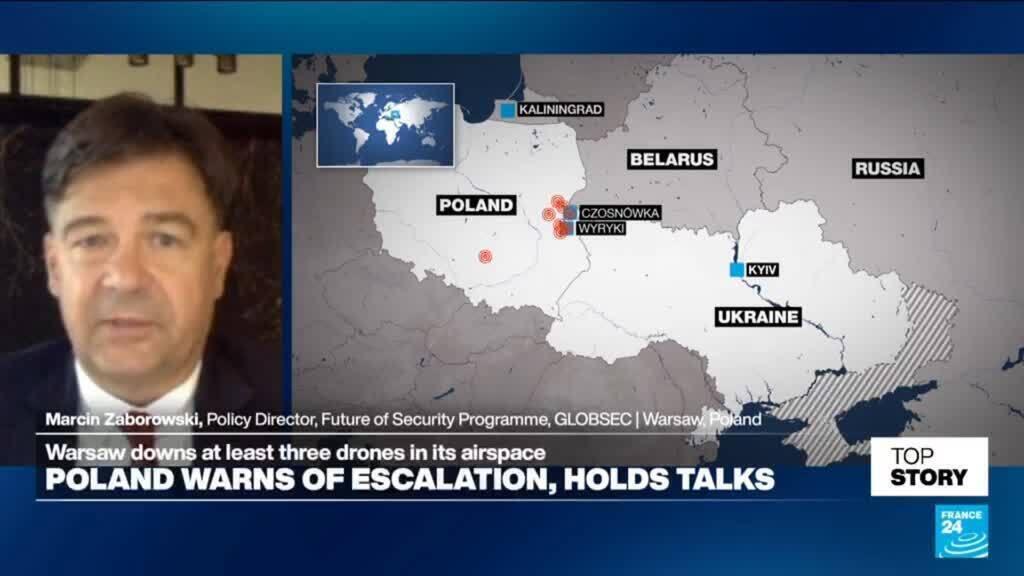The recent developments have escalated tensions in Europe, particularly with the UN Security Council convening for an emergency meeting following a reported Russian drone raid on Polish territory. According to the Polish foreign ministry, this incident marks a significant point of concern, raising alarms over the potential implications for security in the region. The situation underscores the ongoing conflict and geopolitical tensions stemming from the war in Ukraine.
Marcin Zaborowski, the Policy Director of the Future of Security Programme at GLOBSEC, provides valuable insights into the implications of this drone attack during a discussion hosted by Françoise Picard. His expertise highlights the numerous angles that could stem from this event, including military, political, and diplomatic considerations.
The strike's occurrence in Poland, a member of NATO, raises questions about the alliance's response. NATO's principle of collective defense might come into play, as an attack on one member state could be viewed as an attack on all, thus triggering possible military support from other member countries. The immediate ramifications could consequently involve heightened military readiness and strategic planning among NATO forces stationed in Eastern Europe.
Furthermore, Zaborowski notes that this incident may also provoke a stronger European Union stance against Russia. European leaders might feel compelled to rethink their approach to sanctions, diplomatic engagements, and overall security strategies within the region. The interconnectedness of European security is evident, and actions taken in response to this raid could set a new precedent for future interactions with Russia.
In the backdrop, the ongoing conflict in Ukraine continues to evolve, with international powers closely monitoring the situation. The use of drones in military operations has become increasingly prevalent, highlighting the changing nature of warfare and modern military tactics. This incident in Poland not only exemplifies the immediate threats posed to European nations but also reflects broader trends in military strategy that could have lasting impacts on international security dynamics.
Additionally, the potential for misinformation and propaganda in the wake of such incidents cannot be overlooked. As narratives are constructed by various parties, public perception and media coverage will play crucial roles in shaping the international response. Zaborowski emphasizes the importance of a coordinated communications strategy by member states to address misplaced narratives and ensure clarity in reporting.
As the emergency session of the UN Security Council unfolds, the global community is eager to witness the discussions that will shape the next steps in this evolving situation. Concerns about the stability of Eastern Europe are paramount, and member nations will need to engage in meaningful dialogue to formulate a united front against aggression.
Overall, the drone raid on Polish territory is a stark reminder of the fragility of peace in the region. The ramifications of this act of aggression will likely resonate far beyond Poland's borders, as international stakeholders grapple with the implications of broader security challenges. As the world watches closely, the decisions made in the coming days could significantly impact the geopolitical landscape of Europe and beyond.












